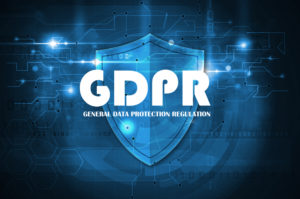(Blue Planet Studio/Shutterstock)
In today’s world, where data is the engine driving everything from innovation to economic growth, there’s a topic that’s quickly gaining significance: data sovereignty. It’s a term that’s thrown around a lot, usually in the context of legal compliance and regulations like the European Union’s GDPR or the U.S. Cloud Act. But here’s the thing: If you’re only thinking about data sovereignty as something you have to do to avoid penalties, you’re missing the bigger picture. It isn’t just a box to tick; it’s a strategic tool that can set your business apart in a rapidly changing digital landscape.
Breaking Down Data Sovereignty
Let’s take a step back and think about what data sovereignty really means. Traditionally, it’s been about making sure data stays within the borders of the country where it was generated, subject to local laws and protections. While this is important, it’s just one piece of the puzzle. Data sovereignty is more than just a compliance issue.
The real opportunity is about recognizing data as a strategic resource—something that can drive growth, build trust, and spur innovation if managed correctly.
Data as a Digital Citizen
Let me introduce you to a concept we’ve been exploring: “Data as a digital citizen.”
Think about it—just like citizens have rights and responsibilities, why shouldn’t data? This idea shifts the conversation from simply protecting data to empowering it, ensuring it’s used in ways that benefit not only your business but also the individuals and communities it touches. It’s a way of thinking that’s becoming more relevant by the day, especially as consumers demand greater transparency and control over their data. Research conducted by KPMG in the U.S. found that 87% of consumers consider data privacy to be a fundamental human right.
This isn’t just a theoretical shift. We’re seeing it play out in real-time, especially with some of the big moves by leading tech companies. Take Microsoft, for example and their decision to store all European cloud data within the European Union. While this move complies with GDPR, it also reflects a deeper strategic understanding of data sovereignty’s importance. By aligning its operations with Europe’s growing demand for digital autonomy, Microsoft is building trust and reinforcing its market position in a region where digital sovereignty is becoming increasingly critical.
The financial sector is another area where data sovereignty is making waves. Remember when the European Union rolled out the Markets in Financial Instruments Directive II (MiFID II)? Many of the financial institutions saw those data localization and transparency requirements as a headache. But some smart players saw an opportunity. By integrating data sovereignty into their business models, these companies turned compliance into a competitive edge, offering more transparent and customer-focused services.
And all of this takes on even greater significance when we consider AI. Ensuring control over data is essential to developing and deploying AI technologies in ways that respect and protect consumer rights. AI systems are only as good as the data they are trained on, so governing this data ethically and transparently is crucial to preventing biases and misuse that could harm consumers. Take the financial sector, for instance—AI-driven credit scoring models must be transparent and fair, ensuring that consumers aren’t unjustly denied services due to biased data.
What This Means for Our Hyperconnected Global Ecosystem
Now let’s talk about the bigger picture. 
The geopolitical landscape is putting data sovereignty in the spotlight like never before. Across the globe, nations are tightening their grip on digital assets, implementing rigorous regulations like data localization laws and cross-border data transfer restrictions to ensure that data generated within their borders remains under their control. These measures, seen in frameworks such as the General Data Protection Regulation (GDPR), California Consumer Privacy Act (CCPA), Digital Personal Data Protection (DPDP) Act, and similar policies emerging worldwide, are not merely reactions to escalating cyber threats and economic espionage.
They represent strategic maneuvers to fortify national security, protect economic sovereignty, and assert control over critical data infrastructure, preventing it from being subject to foreign influence or exploitation. The stakes are higher than ever, as data sovereignty increasingly intersects with geopolitical power, economic stability, and national defense.
How to Adopt Data Sovereignty Into Your Business Practice
So, where does that leave us? If you’re a business leader, it’s time to start rethinking data sovereignty. It’s no longer enough to simply follow the rules; you need to weave data sovereignty into the very fabric of your strategy, and it all starts with a holistic approach that centers on transparency, accountability, and responsible data management.
At the heart of this strategy is the idea of “data democracy by design”—embedding data ownership, control, and action into every facet of your business, from data collection and storage to analysis and sharing. A framework that ensures everyone, from the executives to the data owners, plays an active role in data management.
It means empowering every stakeholder to discover, define, act on, transform, and audit data with intuitive, self-service tools. This approach breaks down the usual complexities and silos of data management. By centralizing governance while allowing decentralized control, you can create adaptable data policies that engage all parts of your organization in data stewardship, fostering both innovation and compliance.
This strategy isn’t just about keeping your processes in check; it’s about aligning them with your larger business goals. By using granular insights, automating workflows, and ensuring security and governance through role-based access control (RBAC), you set the stage for unified, and streamlined data management. Such a framework empowers every level of your organization, promotes accountability, and lays the groundwork for a broader vision: the empowerment of citizen data rights. Companies that embrace this mindset will be better equipped to navigate the global data landscape, forge stronger relationships with consumers, and most importantly create digital trust.
About the author: Piyush Mehta is the CEO of Data Dynamics, Inc., a company he founded in 2012. He has over 30 years of entrepreneurial experience, with the past 27 focused in software and technology services. Mehta is committed to building software solutions that drive value for his customers. Often called the “Dean of Data,” Mehta has established alliances and partnerships with key industry leaders within the data management field. His customer-centric focus has allowed Data Dynamics to have 25 percent of the Fortune 100 companies as its customers, as well as 12 of the world’s top 20 banks.
Related Items:
Data Dynamics Introduces AI-Powered Zubin as a Self-Service Approach to Modern Data Management
Nvidia CEO Calls for Sovereign AI Infrastructure
What Is the American Privacy Rights Act, and Who Supports It?
Source link
lol


